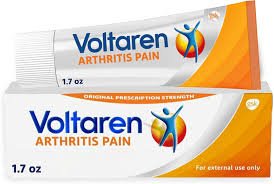Description
Ascriptin Pills: Overview, Uses, Side Effects, and Precautions
Ascriptin is a brand name for a combination medication that contains aspirin and antacid (usually magnesium hydroxide or calcium carbonate). It is primarily used for pain relief and as an anti-inflammatory agent while also providing a protective effect for the stomach. Ascriptin is often used for conditions such as headaches, muscle aches, arthritis, and to prevent heart attacks or strokes in certain patients.
What is Ascriptin?
Ascriptin combines aspirin, a nonsteroidal anti-inflammatory drug (NSAID), with an antacid. The antacid component is included to help reduce the stomach irritation that can occur with aspirin, as NSAIDs are known to cause gastrointestinal (GI) issues, such as ulcers or stomach bleeding, when taken over time or in high doses. The inclusion of an antacid helps buffer the stomach lining and reduces the likelihood of these side effects.
- Aspirin works by inhibiting cyclooxygenase (COX), an enzyme involved in the production of prostaglandins, which are chemicals in the body responsible for pain, inflammation, and fever. By blocking COX, aspirin helps reduce pain, inflammation, and fever.
- The antacid component helps neutralize stomach acid, preventing stomach irritation and discomfort.
Uses of Ascriptin
Ascriptin is commonly used for the following conditions:
- Pain Relief:
Ascriptin is effective in treating mild to moderate pain, including:- Headaches: Aspirin is commonly used for tension headaches and migraines.
- Muscle and joint pain: It helps relieve pain from conditions like arthritis, muscle strains, or sprains.
- Menstrual cramps: Ascriptin can help alleviate pain associated with menstruation.
- Toothaches and minor injuries: It can provide temporary relief from dental pain or discomfort from minor cuts or bruises.
- Fever Reduction:
Ascriptin, like other aspirin-containing products, can reduce fever associated with infections or other medical conditions. - Anti-inflammatory Effects:
Aspirin’s anti-inflammatory properties make it effective for managing conditions that involve inflammation, such as rheumatoid arthritis or osteoarthritis. - Cardiovascular Health:
Ascriptin is often used in low doses for the prevention of heart attacks or strokes in individuals at high risk. Aspirin can help reduce the formation of blood clots, which is a key factor in preventing heart attacks and strokes. - Post-surgical or Post-traumatic Pain:
It may be used to reduce pain and inflammation after surgery or injury.
Dosage and Administration
The appropriate dosage of Ascriptin depends on the condition being treated and the individual’s health needs. Ascriptin is available in tablet form, typically in 325 mg or 81 mg (low-dose) formulations.
- Pain and Fever:
- Adults: Typically, 1 to 2 tablets (325 mg each) every 4-6 hours as needed, not exceeding 12 tablets (3,900 mg) in a 24-hour period.
- Cardiovascular Prevention:
- Low-dose aspirin (81 mg) is commonly prescribed for heart disease prevention or stroke prevention. The usual dose is 1 tablet per day.
Important: Always follow the instructions on the product label or your doctor’s recommendations for dosage. It’s crucial not to exceed the recommended dose to avoid the risk of serious side effects like stomach bleeding or ulceration.
Side Effects of Ascriptin
While Ascriptin is generally safe when used as directed, it can cause side effects in some individuals. Common side effects include:
- Gastrointestinal issues: Since aspirin is a potent NSAID, it can cause stomach upset, nausea, indigestion, or even more severe gastrointestinal issues such as ulcers, bleeding, or perforation of the stomach lining, especially when taken in large doses or over a prolonged period.
- Dizziness or lightheadedness: Some users may experience dizziness, especially if they stand up quickly.
- Rash: Allergic reactions to aspirin can include a rash or itching.
- Tinnitus (ringing in the ears): High doses of aspirin may cause tinnitus, a ringing or buzzing sound in the ears.
- Heartburn or upset stomach: Despite the antacid, some people may still experience heartburn or stomach discomfort.
Serious side effects, though rare, may include:
- Severe allergic reactions: Symptoms can include swelling of the face or throat, difficulty breathing, and severe skin rashes.
- Gastrointestinal bleeding: Signs include black or bloody stools, vomiting blood, or severe stomach pain.
- Kidney damage: Prolonged use of high-dose aspirin can lead to kidney issues, especially in people with pre-existing kidney conditions.
- Liver damage: Although rare, taking aspirin in excess can affect liver function.
Precautions and Warnings
Before using Ascriptin, it’s essential to inform your healthcare provider about any medical conditions or medications you are taking, especially:
- Gastrointestinal conditions: If you have a history of ulcers, stomach bleeding, or other GI problems, you should avoid aspirin or use it only under a doctor’s supervision.
- Kidney or liver disease: People with kidney or liver disease should take aspirin cautiously, as it can affect these organs.
- Heart disease or hypertension: Aspirin can increase the risk of bleeding, and prolonged use can potentially affect heart and blood pressure management.
- Pregnancy: Aspirin is generally not recommended during pregnancy, particularly during the third trimester, as it can affect the fetus. Always consult a doctor if pregnant or planning to become pregnant.
- Breastfeeding: Since aspirin passes into breast milk, it should only be used in breastfeeding mothers if absolutely necessary and under a doctor’s advice.
- Children and teenagers: Aspirin should not be given to children or teenagers with viral infections due to the risk of Reye’s syndrome, a rare but serious condition that can cause liver and brain damage.
Drug interactions:
- Blood thinners: Combining aspirin with blood thinners like warfarin can increase the risk of bleeding.
- Other NSAIDs: Do not combine Ascriptin with other NSAIDs (e.g., ibuprofen, naproxen) as this increases the risk of side effects like stomach ulcers or bleeding.
- Antihypertensive medications: Aspirin may interfere with the effectiveness of certain blood pressure medications, such as ACE inhibitors or diuretics.
Conclusion
Ascriptin is a combination medication that provides pain relief, reduces fever, and offers anti-inflammatory benefits while helping protect the stomach from the irritation typically caused by aspirin. It is commonly used for managing pain from various conditions, preventing cardiovascular events, and reducing inflammation. However, it is essential to follow proper dosing guidelines and consult a healthcare provider before using Ascriptin, especially for people with pre-existing conditions or those who are pregnant, breastfeeding, or taking other medications. Always use Ascriptin as directed to minimize the risk of potential side effects, particularly those related to the gastrointestinal system.






Reviews
There are no reviews yet.